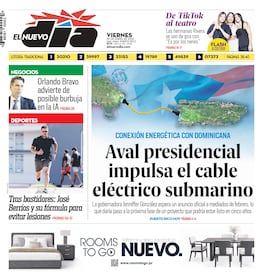The close passage of Hurricane Erin served as a barometer of vulnerability for Puerto Rico. Although it did not come close to our island, its proximity was enough to leave more than 160,000 customers without power and cause the paralysis of some commercial and industrial sectors.
---
Lee este artículo en español.
---
As the peak of hurricane season progresses, frequent blackouts and disappointed customers persist as a result of expensive and unstable service. In 2023 alone, Puerto Rico experienced more than 20,000 reported power outages, with average durations longer than in any other US territory.
Added to this is the heavy legacy of the Puerto Rico Electric Power Authority (PREPA), whose bond debt exceeds $8.5 billion. If that burden is imposed on the bill, as bondholders intend, we would be paying for poor service that, on average, already costs more than twice as much as in the United States. We cannot be expected to finance with our own pockets the corruption and government inefficiency we have suffered for decades.
In this bleak scenario, the figure of Energy Czar Josué Colón seems trapped in political and technical prejudices. The former PREPA executive is inclined to take away the private sector’s responsibility for transmission and distribution, but without a transition or contingency plan. He wants the state to regain control of an electrical grid that, for multiple reasons, it failed to manage, and for the private sector to remain in charge of generation. The move seems more like a political excuse than a technical solution and demonstrates a lack of coherent vision in energy strategy.
Jenniffer González’s administration came to power promising to tackle the energy problem at its root. However, now at the peak of hurricane season, the outlook is uncertain. The PREPA emergency fund has barely $15 million, a paltry sum given the magnitude of the risks. To put it in perspective: repairing the damage that Hurricane Maria caused to the electrical system will cost about $13 billion. That catastrophe was followed by the negative impact of Hurricane Fiona, which caused damage to the electrical system amounting to $4 billion and sucked up virtually all of the few resources remaining in PREPA’s emergency fund.
Specialized vehicles, temporary power plants, and other first-response equipment have been caught up in a sea of bureaucracy, inefficiency, and deals with some suppliers who inflated the prices of the products they offered. It was the Fiscal Oversight Board (FOMB) itself that had to dismantle these purchases, which are linked to political interference, so often repudiated by the people. The result: the entire hurricane season could pass without us having the promised emergency energy resources, due to contracts representing millions of dollars in investments.
Meanwhile, President Donald Trump’s intervention on the FOMB ended up dismantling any serious strategy for renegotiating PREPA’s debt. Thus, the fragility of our political and administrative framework is once again exposed. Puerto Rico always leaves itself open to attack: weakened governments, complacent technocrats, and bureaucrats who end up validating the federal government’s narrative.
Today, of the $17 billion promised by FEMA to repair and modernize the power grid, only $3.2 billion has been disbursed. LUMA estimates that at least $25 billion will be needed to achieve a robust system, but the difference between what was promised and what has been delivered keeps the country in limbo. Meanwhile, we continue to depend on fossil fuels for 60% of our energy and barely reach 6% renewable energy, despite the mandate to achieve 100% green generation in just 25 years.
The most painful thing is the helplessness that prevails among citizens and the private sector, but which seems to be ignored by the public sector. With projections of stronger hurricanes, increasing coastal erosion, and other complexities that exacerbate our vulnerability, we do not have enough money or equipment to respond effectively to an emergency.
Inaction and fruitless disputes cannot continue, nor can we stand by and watch as a kind of white-collar looting mercilessly prolongs the precarious situation of the population, despite the good intentions of La Fortaleza.
To rebuild our power grid, it is urgent to manage the crisis with transparency and accountability, always putting Puerto Rico first.
There is no room for poor governance. Erin only grazed us. The question is how much longer Puerto Rico will endure, trapped between hurricanes and bad decisions that fill us with helplessness.
---
This content was translated from Spanish to English using artificial intelligence and was reviewed by an editor before being published.


